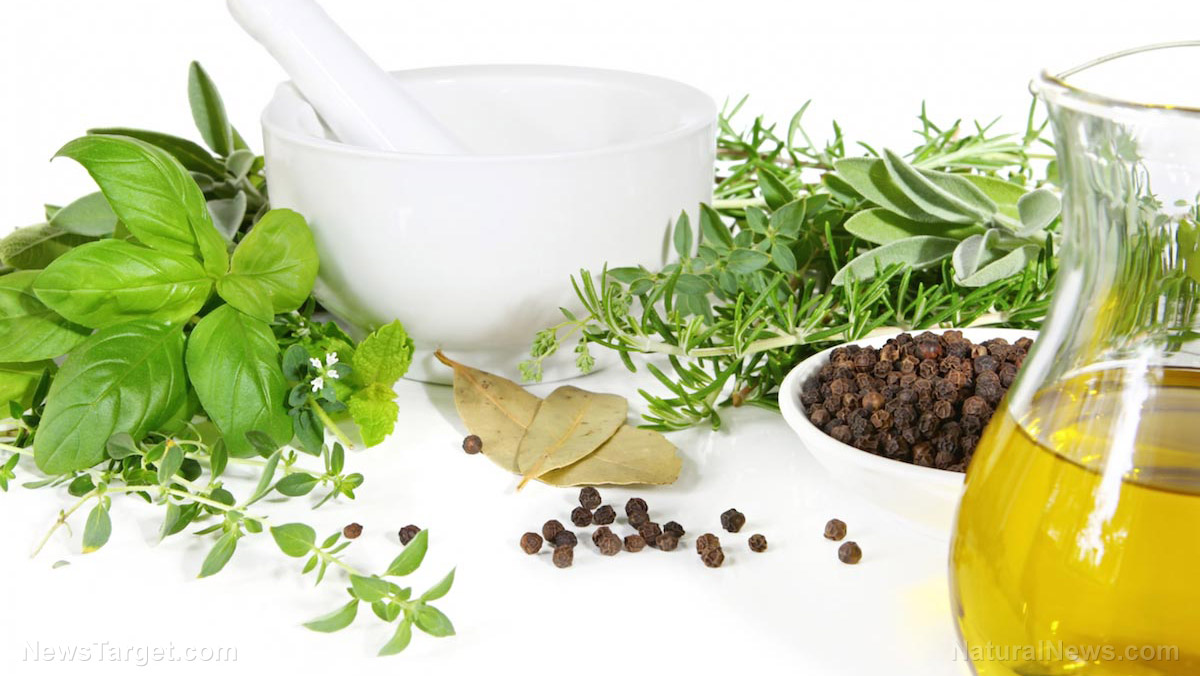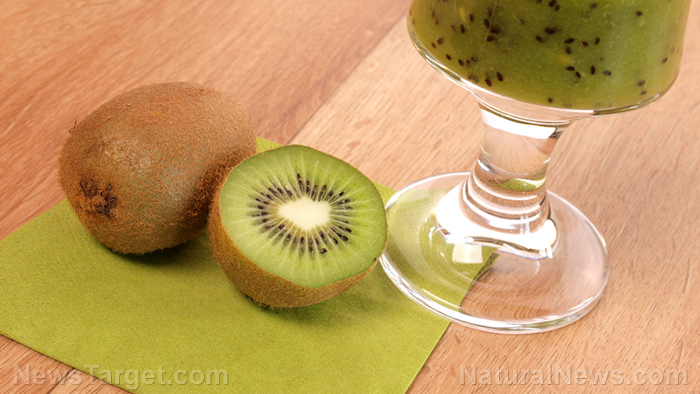Use oregano oil as a natural method to clean food surfaces
05/18/2018 / By Michelle Simmons

Minimize the risk of food poisoning from contaminated food surfaces by using oregano oil. A study published in LWT- Food Science and Technology found that oregano oil helps kill bacteria.
In the study, a team of researchers from Federal University of Paraiba in João Pessoa, Brazil analyzed the efficiency of using the essential oil of the oregano plant (OVEO) or carvacrol, a phenolic compound found in OVEO, in removing biofilms formed on stainless steel surfaces.
The research team exposed the pathogenic bacterium Staphylococcus aureus – which has been linked to many instances of food poisoning around the world – to either 10 microliters per milliliter (?L/ml) of OVEO or 5 ?L/ml carvacrol. The research team explained that it can survive because of its ability to form strong biofilms, which withstand most attempts to eliminate the bacterium from food preparation surfaces.
After 10 minutes of exposure to either OVEO or carvacrol, the number of cells on the surfaces decreased by more than 100 times for both strains of S. aureus examined. After 15 minutes, the same concentrations of OVEO and carvacrol virtually eliminated one strain of the bacteria to undetectable levels. However, only carvacrol effectively removed both strains of the bacteria, and was able to create holes in the cell membranes of S. aureus cells. These showed that carvacrol was more effective than the essential oil itself.
In addition, both the oregano-derived treatments were found to be more efficient in removing the bacteria than sodium hypochlorite (NaClO), which is a “conventional” way of eliminating pathogenic bacteria from stainless steel surfaces. The oregano-derived treatments also did not cause corrosion damage to the surfaces, contrary to NaClO.
“The results of this study indicated that carvacrol and OVEO are effective agents to remove young and mature S. aureus biofilms on stainless steel surfaces. OVEO and carvacrol were more effective than NaClO to remove S. aureus biofilms on a stainless steel surface, while causing no damage on these surfaces, as did NaClO,” senior author Marciane Magnani explained.
Other ways to prevent food poisoning
In the U.S., approximately one in six people get sick every year because of foodborne diseases. Here are other ways to cut your risk of food poisoning at home:
- Cook food thoroughly – Cook food to the right internal temperature to kill harmful bacteria.
- Keep your fridge below five degrees Celsius – To avoid bacteria from multiplying, keep your refrigerator temperature below 40 F. If you have leftovers, refrigerate within two hours of cooking.
- Separate raw meat – Ready-to-eat foods, such as salad, fruit, and bread, should be kept away from raw meat. Cover raw meat and put it on the bottom shelf of the fridge where it cannot touch or drip onto the other foods. This is because these foods will not be cooked before consumption, and any bacteria that get onto these foods from the raw meat will not be killed.
- Use different chopping boards – Using a different chopping board for preparing raw food, such as meat and fish, will help avoid contaminating ready-to-eat foods with harmful bacteria that can be present in raw food before it has been cooked.
- Wash countertops – Wash countertops with hot, soapy water before and after preparing food, especially after they have been touched by raw meat, raw eggs, fish, or vegetables.
- Wash dishcloths and tea towels – Since dirty, damp cloths are places where germs thrive, it is important to regularly wash dishcloths and tea towels. Let them dry first before using them again.
- Wash your hands thoroughly – This may be a simple step, but it is helpful. Thoroughly wash your hands with soap and water – either warm or cold – and dry them before handling food, after handling raw foods, and after touching the trash bin, going to the toilet, blowing your nose, or touching animals.
Read more news stories and studies on essential oils by going to EssentialOils.news.
Sources include:
Tagged Under: bacteria, biofilms, carvacrol, clean food, essential oils, food, food handling, food poisoning, food safety, food surfaces, foodborne diseases, harmful bacteria, natural method, natural solutions, oregano, oregano oil, Origanum vulgare, pathogenic bacteria, pathogens, raw meat, S. aureus, Staphylococcus aureus, uncooked meat




















